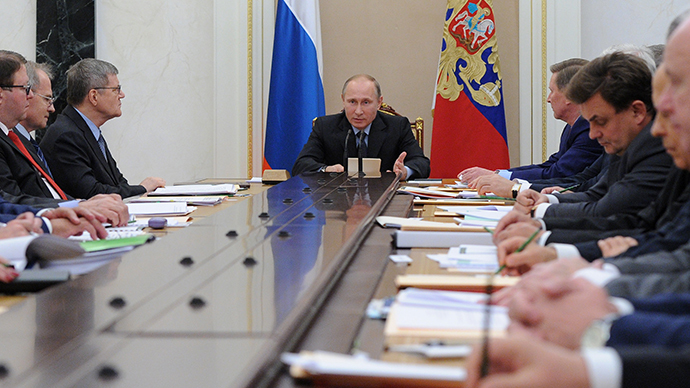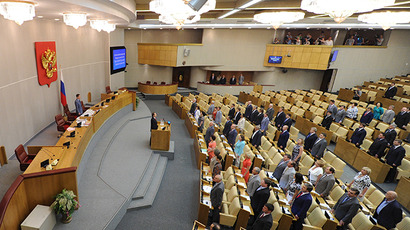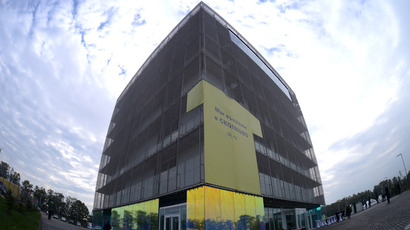Putin urges zero tolerance to corruption

The Russian President has said that anti-corruption behavior should be adopted throughout society and criticized present anti-corruption legislation as too soft.
Speaking at a session of the Anti-Corruption Council on Wednesday Vladimir Putin called on the members to be tougher when countering corruption in the courts and law enforcement bodies, saying that when it happened it gravely undermined society’s trust in the state in general.
The council is a consultative body chaired by the President and including the heads of law enforcement, senior government officials and public activists.
Putin then told the participants he expected them to submit particular suggestions on fighting corruption, first in the sphere of communal services, consumer market and in various government tenders.
According to the Russian leader the size of kickbacks civil servants demand and get from businessmen for lucrative contracts can reach 30 or even 50 percent of the overall price. Putin also said that in some Russian regions there were well known tariffs for various bribes that were even indexed to keep up with the inflation. “I would like to hear your suggestions on how we can lower the quantity of bribes in these spheres,” Putin told the council session.
Putin also urged the officials to make anti-graft standards universally accepted. He added that society and business had the right to demand the state strictly observed all anti-corruption laws, but should not act as indifferent observers. Moreover, quite often citizens were pushing civil servants towards violations in pursuit of their own business interests.
The president also noted that recent changes in Russian criminal law had complicated the anti-corruption drive. “In the first half of this year almost 700 people were convicted for taking bribes, 692 people to be precise. I would like to draw your attention to the fact that only 8 percent of the bribe-takers were sentenced to prison time, the majority got away with fines that the criminals manage not to pay by using various loopholes,” Putin noted.
“The practice shows us that the liberalization is not working the way it should,” the President added.
Corruption is currently considered a major challenge by the Russian people, authorities and experts.
A public opinion poll conducted in July this year by the Levada Sociology Center showed that 30 percent of Russians consider corruption an inevitable evil in the current political and economic system, 22 percent blamed the national Russian character, and 18 percent said that the authorities needed more control.
To counter such an approach President Putin suggested punishing
high-placed officials if law enforcers uncover facts of
corruption within their organisations. “Heads of state bodies
of all levels must bear personal responsibility if persons who
consider state service a source of personal enrichment infiltrate
their staff,” Putin told the council, adding that anyone who
was willing to become a civil servant must understand that taking
official positions led to certain limitations and very rigid
anti-corruption demands that should be strictly observed by all.














